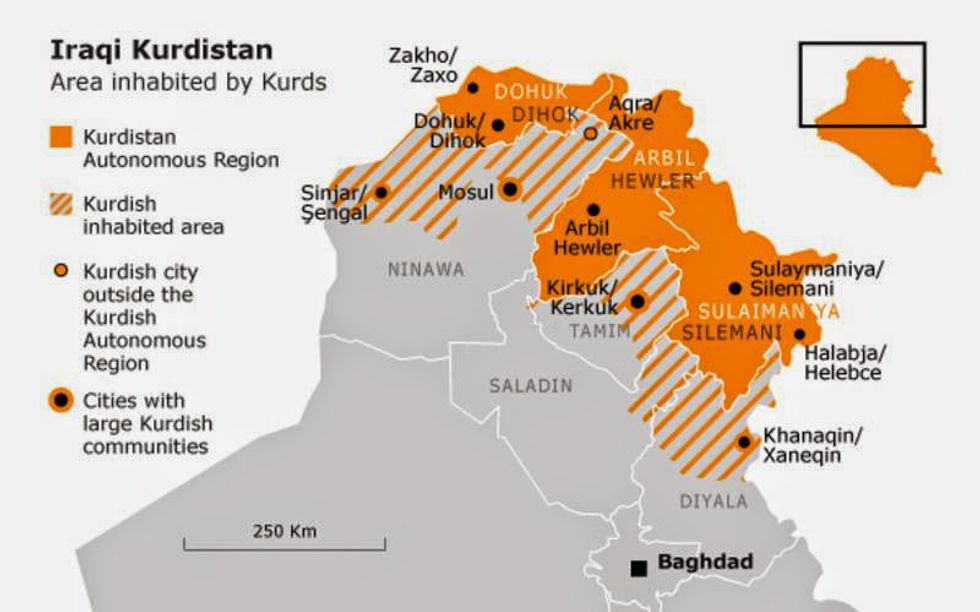On March 14th, Iraqi government forces killed ISIS commander, Abu Abdul Rahman al-Ansary, as they continued their laggard campaign to retake Mosul. The loss comes as the latest of setbacks for the Islamic State, which is currently failing to maintain control of its territories from the Western coalition and US-backed Iraqi-Kurdish armies. Iraqi forces have been under constant fire from the terror group as they have slowly whittled away at its hold of Mosul. The Mosul offensive is entering its fifth month of combat operations.
Mosul is the last ISIS stronghold within Iraq and its recapture would almost be a death sentence to its Iraqi territory. As defeat of the Islamic State now seems inevitable, its opponents have begun to envision a post-ISIL Middle East. Such a world would not merely have an absence of ISIS but would rather continue to be contentious due to the deadly affront to territorial status the terror group has absolved with its establishment. A great allure to the ISIL cause has been its portrayal as the bastion of anti-Western imperialism through its dismantling of borders drawn through the Sykes-Picot agreement.
Recommended for you
The Sykes-Picot agreement was made a century ago as a secret deal between Britain and France to colonize former Ottoman territories. Crafted by the UK, France, and Russia in 1916, the plan proposed the division of the Middle East into five regions: two to be ruled and influenced by Britain, two to be ruled and influenced by France, and one to be the site of a future Jewish state in Palestine. Despite these secret intentions, Britain publicly supported self-determination for Arab citizens. It allied with Sharif Hussein bin Ali of Mecca, who led a revolt against the Ottomans, to win World War I in the Middle East. Hussein would be declared king in 1918 and united the Arabs from Syria to Palestine to Mecca.
Under the newly established League of Nations, the Allies could not annex enemy territory, nullifying the original Sykes-Picot plans. However, the League allowed for a mandate system, in which a country could mandate its authority upon another. When the new Syrian kingdom claimed control of Palestine, which the West designated to be the location of a Zionist state, the San Remo conference was held. The conference decided to recognize local Arab governments but authorizing mandates on their administration. This prompted France to overthrow the Syrian government in 1920 and the British to take Iraq and Palestine. After successive treaties and sketching of borders, the states of Lebanon, Syria, Iraq, and Kuwait were established and in 1948 Israel was created.
The importance of this affair is that national borders were contrived irrespective of local ethnic and cultural differences by foreign powers. Much of the subsequent conflicts of the Middle East have been produced by the conglomeration of different peoples within each of these states. ISIS is the result of a century-old betrayal and its inevitable defeat will not secure peace for the Middle East.
When ISIS established its caliphate in 2014, it dissolved the borders between Iraq and Syria, which was their first infraction since their creation generations earlier. This monumental act contributed to its credence as a legitimate force against alleged Western imperialism. Additionally, this move now threatens to disturb future peace among Middle Easterners as now minority groups have begun to attempt to establish their own borders.
As Iraqi government forces combat ISIS within Mosul, much of the surrounding territory has been liberated by the Kurdish minority in Iraq. The Kurds have been critical in the rollback of ISIL and have taken advantage of the situation to increase their territory by forty percent. Now as the grip ISIS has on Mosul weakens, the Kurdish forces have proposed relinquishing their newly gained land to Iraq in exchange for independence. Their military investment in the conflict has impressed United States President Donald Trump, whom they hope will support them in a potential referendum.
Since the century-old legacy of foreign imposed borders has been shattered, it becomes ever likely that minority groups will begin to vie for their own land. Such campaigns will only further weaken a weary Middle East. As the Mosul battle approaches its climax, the ultimate question is not when will ISIS be defeated, but rather what comes next.





















